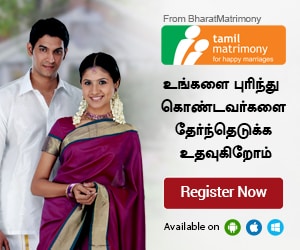KARNATAKA RESULTS SHOW OPPOSITION MUST UNITE TO FIGHT NARENDRA MODI IN 2019 OR RISK BEING OBLITERATED | NEWS 24
Several months later, with the benefit of hindsight, Opposition parties in India would be thanking their stars that the nataka in Karnataka happened much before the 2019 general elections. They should be happy because the unfolding drama has alerted them to the script that could unfold after elections to Parliament and given them time to come up with their own game plan.
Karnataka is important for the Opposition parties as it reminds them that the BJP believes in the principle of everything being fair in politics and power. It is capable of forming a government under every circumstance: With a majority, without a majority, when it is the single largest party and even when it is not the single largest party. It can come to power by, as Chanakya advised, saam, daam, dand and bhed.
If the Opposition has been watching, it would have realised that the BJP has multiple models for forming a government if it doesn't have the numbers on its own or with the help of its pre-poll allies. It has the Arunachal model that is based on mass defections. It has the Goa model based on denying the single largest party a chance to form the government through quick post-poll maneuvers. And it has the Karnataka model based on its status as the single largest party to keep out a post-poll alliance that apparently has the numbers.
The BJP's mindset reveals it will try to form the government in 2019 €" or in 2018 if simultaneous elections are held for several state Assemblies and Parliament €" at any cost. Even if it doesn't get a majority on its own or with the help of its allies, it would employ one of its three models to keep the Opposition out. Is the Opposition ready to play the BJP's game?
One of the key learnings for the Opposition from the Karnataka elections should be this: Unite before polls or perish after them, don't rely on a post-poll patch up. The results have proved the BJP benefits from a multi-corner contest. So, if the Opposition has to take on the BJP, it has to put together a united front.
This can occur only if two things happen: One, Congress president Rahul Gandhi gives up his prime ministerial ambitions and agrees to replicate the Karnataka model €" agrees to be a junior partner €" in Uttar Pradesh, Bihar, Andhra Pradesh, Telangana, West Bengal, Tamil Nadu and Odisha. Two, regional leaders such as Mamata Banerjee, Chandrababu Naidu, Mayawati, Akhilesh Yadav, K Chandrasekhar Rao, Sharad Pawar and Naveen Patnaik bury their ambitions, hubris and differences and come up with a tactical pan-India alliance with the Congress.
It can, of course, be counterproductive. In a presidential-style election where the fight is Modi vs all, the prime minister has the advantage of being seen as a lone warrior against a rag-tag army of opportunistic leaders. But, in spite of this risk, this is the only option the Opposition has against the BJP.
This strategy would help not just during elections but also limit discretionary powers of the president in case the BJP doesn't get a clear majority. If that happens, the BJP would find it difficult to employ its Goa (we have the post-poll numbers even if not the single largest) and Karnataka (we are the single largest) models. A pre-poll coalition would make it mandatory for the president to invite the coalition if it has the numbers.
Legally too the Karnataka episode could be a blessing in disguise both for the Opposition and Indian democracy. Who should first be invited to form the government in case of a hung Assembly has always been a debatable subject. It was partly settled when the Congress challenged the governor's invite to the BJP in Goa when the Supreme Court upheld the decision by pointing at the post-poll alliance.
"When no political party is in majority, then it is the bounden duty of the governor to see who can form the government. If nothing happens, then the governor is duty-bound to call the leader of the single largest party, but if someone goes to the governor with a list of supporters, then it is a different issue altogether", a bench of then chief justice JS Khehar and Justices Ranjan Gogoi and RK Agrawal said. Ideally, the same principle should have been applied by the governor in Karnataka after JD(S) and Congress joined hands to muster the numbers.

Comments
Post a Comment